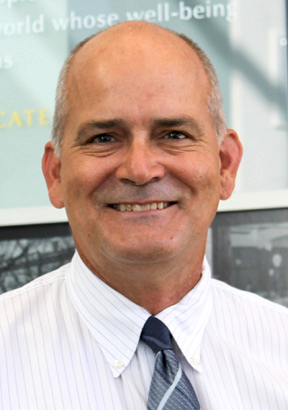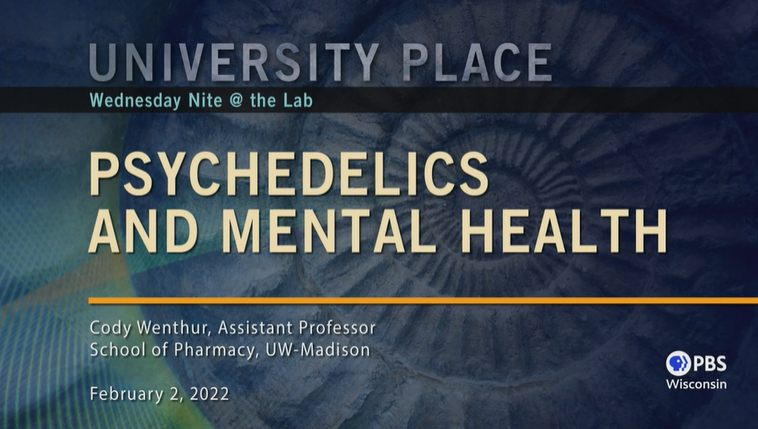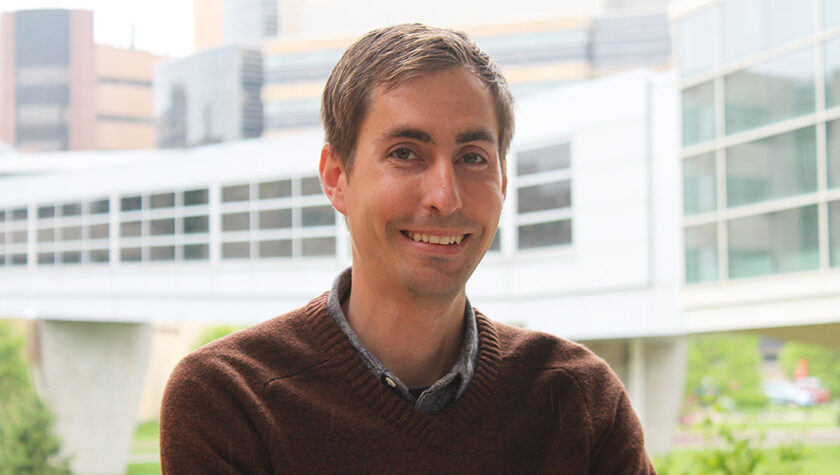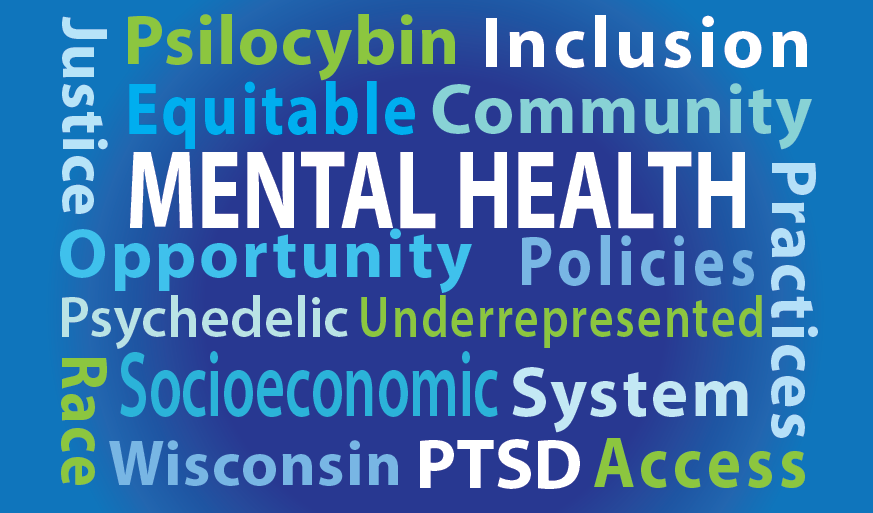On behalf of the UW Madison Transdisciplinary Center for Research in Psychoactive Substances (the “Center”), I welcome you to our website and encourage you to explore what our researchers and scholars are up to. One of the best ways to keep up to date with opportunities to attend events or participate in clinical research is to sign up for our Center’s newsletter.
One of the questions I frequently hear is why the Center’s name includes “Psychoactive” instead of “Psychedelic”. There are actually several reasons for this. One is that we are studying multiple drugs that do not necessarily qualify for the common definition of a psychedelic. Psychedelic drugs would include psilocybin, LSD, mescaline, and 5-MeO-DMT. We are also studying MDMA for PTSD, cannabinoids, and ketamine: none of these typically elicit hallucinations, but clearly have psychoactive effects.
Another reason for the use of “psychoactive” instead of “psychedelic” is to anticipate the introduction of novel compounds that are similar to drugs like psilocybin or LSD but do not cause the classic psychedelic experience. Microdosing research would be another example.
The Center is “Transdisciplinary” in that we are seeking to develop collaborations and provide resources across the UW Madison’s multiple schools, centers, and institutes. These include the Schools of Pharmacy, Medicine and Public Health, Nursing, Engineering, Social Work, and Latin, Caribbean, and Iberian Studies.
Note under the “Education” tab on the Center’s landing page that the School of Pharmacy has developed an online Master of Science program in Psychoactive (there it is again) Pharmaceutical Investigation. Further, the Center is planning educational programming for clinicians as well as the lay public in anticipation of FDA approval of psilocybin, MDMA, and other compounds in the near future.
Thanks for visiting, and check back again soon.

Paul Hutson, PharmD
Director
UW Madison Transdisciplinary Center for Research in Psychoactive Substances
Sign up for TcRPS news
Stay up-to-date with our latest news, events, and research
About
On the forefront of research and education in psychedelic drugs and related compounds
The mission of the UW–Madison Transdisciplinary Center for Research in Psychoactive Substances is to support research and educational activities regarding psychedelic drugs and related compounds. The Center supports the UW–Madison campus and the Wisconsin community with research infrastructure, such as drug dosing rooms, treatment facilitator training, and education.
Although some work focuses on drugs with a clear psychedelic effect, related substances may have clinical effects on mood or behavior without the psychedelic experience, thus the use of the term “psychoactive.”
The Center supports the Master of Science in Psychoactive Pharmaceutical Investigation.
The Center also seeks to establish relationships with commercial entities that would benefit from various screening tests or early stage clinical trials.
The University of Wisconsin–Madison Transdisciplinary Center for Research in Psychoactive Substances recognizes that research on psychedelics to date has disproportionately included white adults. We actively seek to improve the accessibility of the research on psychedelics and psychoactive agents for persons in marginalized groups, those with lower socioeconomic backgrounds, and with barriers that include transportation, inflexible job schedules, and child care. This outreach is intended to include both urban and rural communities, and will require attentive understanding of the concerns of the respective communities regarding this area of research.
Equity in Psychedelic Therapies
As psychoactive substances gain therapeutic evidence, School of Pharmacy Assistant Professor Cody Wenthur aims to reverse underrepresentation of minorities in clinical studies.
TcRPS to Focus on Underserved Communities in Psychedelic Research
Building on its ongoing psychedelic studies, UW-Madison has launched a program to explore the “science, history, and cultural impact of psychedelic agents” with a focus on expanding participation from research subjects of diverse and underrepresented backgrounds.



